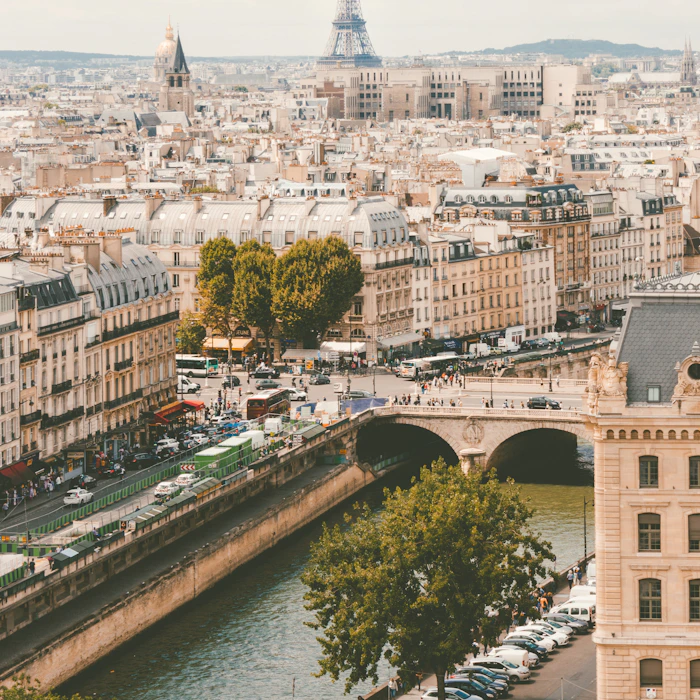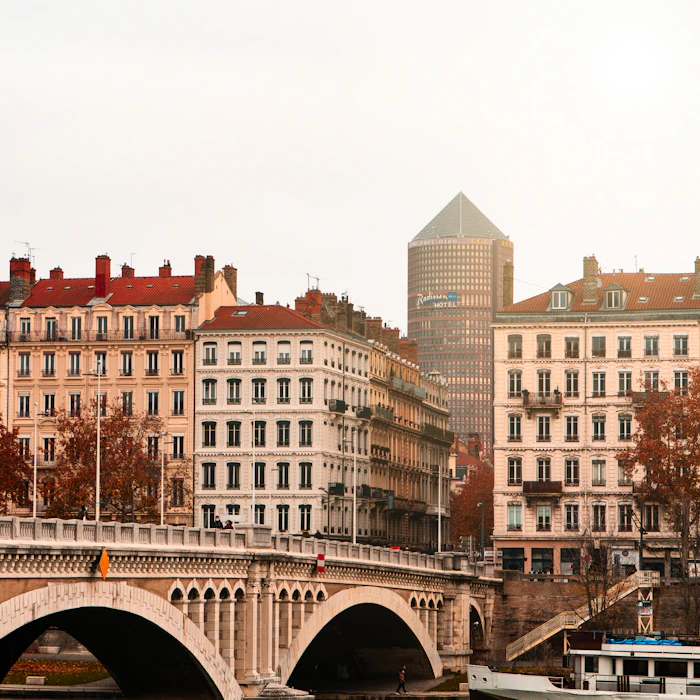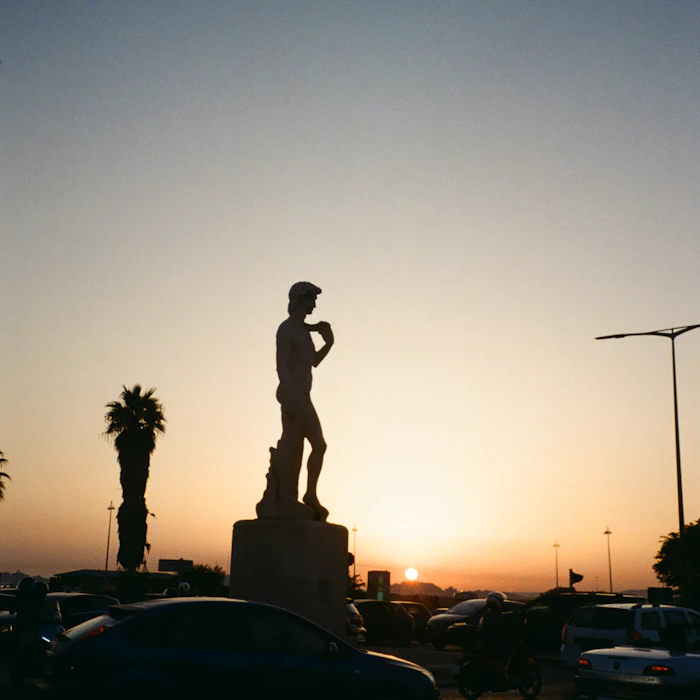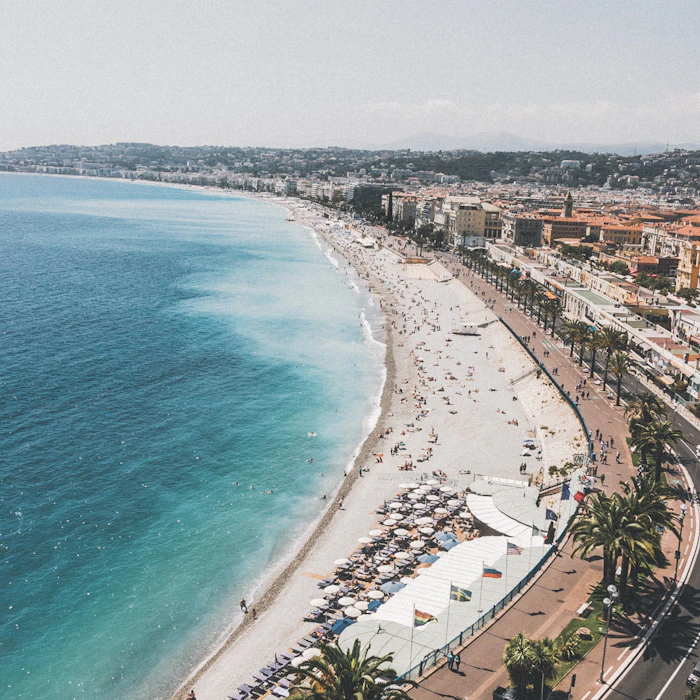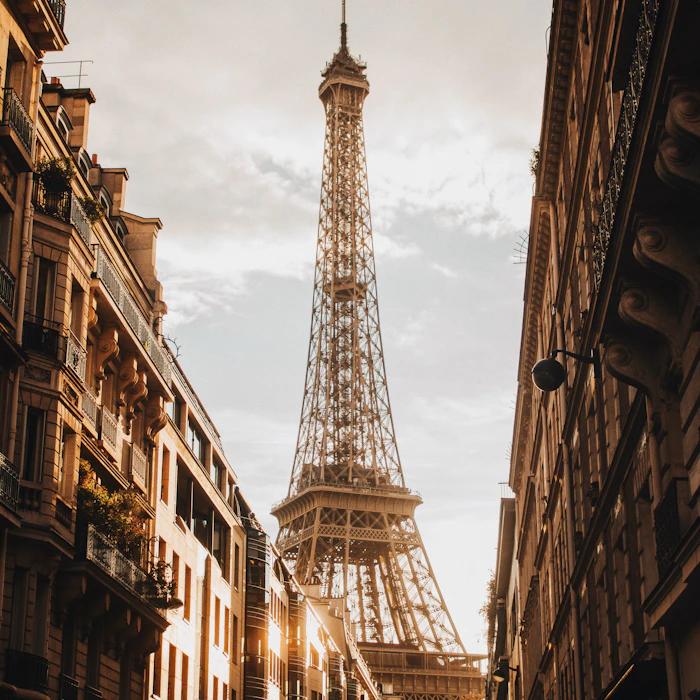


Is Toulouse in France Safe?
Toulouse is generally safe for tourists, with low violent crime rates. However, petty crimes like pickpocketing are common in crowded areas. Protests and strikes can disrupt transportation occasionally. Travelers should remain vigilant in busy tourist spots and during public events. The city has excellent medical facilities, but some vaccinations may be recommended for certain travelers.
Safety & Security
Toulouse, a vibrant city in southern France, is generally considered safe for travelers. However, it's essential to exercise caution and be aware of potential risks. Here's an overview of the safety situation:
-
Petty Crime: Like most major cities, Toulouse experiences some petty crime, such as pickpocketing and bag snatching, particularly in crowded areas and on public transportation. Remain vigilant and keep valuables secure.
-
Violent Crime: Incidents of violent crime against tourists are relatively rare, but exercise caution in isolated areas, especially at night.
-
Scams: Be wary of common scams, such as fake petitions, street vendors selling counterfeit goods, or individuals offering unsolicited services. Politely decline and walk away.
-
Civil Unrest: While Toulouse is generally peaceful, monitor local news and avoid any demonstrations or protests, as they can sometimes turn violent.
-
Terrorism: France has experienced terrorist attacks in recent years. While the risk is low in Toulouse, remain vigilant in crowded areas and follow the advice of local authorities.
-
Disputes: Disputes or confrontations with locals are uncommon but can occur. Remain calm and avoid escalating situations.
Overall, Toulouse is a safe destination for travelers who take reasonable precautions. Stay alert, avoid isolated areas at night, and keep valuables secure to minimize risks and enjoy your visit.
Health & Medical
Toulouse is generally a safe destination for travelers in terms of health risks. However, it's essential to take some precautions to ensure a smooth and healthy trip. Here are some key points to consider:
-
Vaccinations: Ensure your routine vaccinations are up-to-date, including measles, mumps, rubella (MMR), diphtheria, tetanus, and polio. No additional vaccinations are typically required for travel to Toulouse.
-
Air Quality: Toulouse experiences moderate air pollution levels, primarily due to traffic emissions. Those with respiratory conditions may want to take necessary precautions.
-
Insect-Borne Diseases: While the risk is low, mosquito-borne diseases like West Nile virus and Zika virus have been reported in France. Use insect repellent and cover exposed skin during peak mosquito hours.
-
Medical Facilities: Toulouse has excellent medical facilities, including public hospitals and private clinics. However, it's advisable to have comprehensive travel insurance to cover any potential medical expenses.
-
Water and Food Safety: Tap water is generally safe to drink in Toulouse, but bottled water is widely available. Exercise caution when consuming street food or undercooked meat and seafood to avoid foodborne illnesses.
-
Sun Exposure: Protect yourself from excessive sun exposure by using sunscreen, wearing a hat, and seeking shade during peak hours, especially during the summer months.
Natural Disasters
Toulouse, located in the southwest of France, is generally not prone to major natural disasters. However, travelers should be aware of the following potential risks:
-
Flooding: The city is situated along the Garonne River, and heavy rainfall can occasionally lead to flooding in certain areas. While major flooding events are rare, it's advisable to monitor weather forecasts and follow local advisories during periods of heavy rain.
-
Thunderstorms: Toulouse experiences thunderstorms, particularly during the spring and summer months. These storms can sometimes be accompanied by strong winds, hail, and lightning strikes. Seeking shelter during severe thunderstorms is recommended.
-
Heatwaves: Like many parts of France, Toulouse can experience periods of extreme heat during the summer months. Travelers should take precautions to stay hydrated and avoid prolonged exposure to the sun during heatwaves.
-
Earthquakes: While not a major seismic hotspot, Toulouse is located in a region with a moderate risk of earthquakes. However, significant quakes are infrequent, and the city's infrastructure is designed to withstand moderate seismic activity.
It's important to note that the risk of natural disasters in Toulouse is relatively low compared to many other destinations. Nevertheless, travelers should remain vigilant, follow local weather advisories, and take appropriate precautions during periods of adverse weather conditions.
Transportation
Public transportation in Toulouse is generally safe and reliable. The city has an extensive network of buses, trams, and a metro system that covers most areas. However, it's advisable to exercise caution, especially at night and in crowded areas, as petty crimes like pickpocketing can occur.
-
Public Transit: The metro, trams, and buses are well-maintained and operate on a regular schedule. They are a convenient way to navigate the city, but remain vigilant against pickpockets and bag snatchers.
-
Taxis: Taxis in Toulouse are a safe option, especially for late-night travel or when carrying valuables. Use licensed taxis from official ranks or book through reputable apps.
-
Cycling: Toulouse has a bike-sharing system and dedicated bike lanes, making cycling a popular and eco-friendly way to explore the city. However, be cautious of traffic and follow road safety rules.
-
Driving: While driving in Toulouse is generally safe, be aware of narrow streets, pedestrian zones, and limited parking options in the city center. Obey traffic laws and avoid leaving valuables in plain sight in your vehicle.
-
Road Safety: Exercise caution when crossing streets, as drivers may not always yield to pedestrians. Use designated crosswalks and follow traffic signals.
Cultural Norms
Toulouse is a vibrant city with a rich cultural heritage. As a traveler, it's essential to respect the local customs and traditions to ensure a smooth and enjoyable experience. Here are some tips for respecting the culture in Toulouse:
-
Religious Customs: Toulouse has a strong Catholic tradition, and many churches and cathedrals are active places of worship. Dress modestly when visiting these sites, and avoid disruptive behavior.
-
Local Festivals: Toulouse hosts several festivals throughout the year, such as the Fête de la Violette (Violet Festival) and the Rio Loco music festival. Participate respectfully and follow any specific guidelines or dress codes.
-
Language: While many locals speak English, making an effort to learn and use basic French phrases will be appreciated. Greet people with a friendly "Bonjour" and "Merci" when appropriate.
-
Dining Etiquette: When dining out, it's customary to keep your hands visible on the table and avoid loud or boisterous behavior. Tipping is not mandatory but appreciated for good service.
-
Public Behavior: Toulouse has a relaxed and friendly atmosphere, but public displays of affection beyond hand-holding may be frowned upon. Avoid littering and respect public spaces.
-
Local Traditions: Toulouse has a strong rugby culture, and the sport is deeply ingrained in the city's identity. Attending a match or engaging in conversations about rugby can be a great way to connect with locals.
Remember, respecting the local culture not only enhances your travel experience but also fosters a positive relationship between visitors and residents.
Emergency Services
Emergency services in Toulouse are generally reliable and well-equipped to handle various situations. The city has a comprehensive network of emergency responders, including police, fire brigades, and medical services.
-
Emergency Medical Services: Toulouse has several hospitals and clinics that provide emergency medical care, including the Hôpital Purpan and the Clinique Sarrus Teinturiers. These facilities are staffed with trained professionals and equipped with modern medical equipment.
-
Fire and Rescue Services: The Toulouse Fire Brigade (Bataillon de Marins-Pompiers de Marseille) is responsible for fire suppression, rescue operations, and emergency response. They have a good response time and are well-trained to handle various emergencies.
-
Police Services: The French National Police (Police Nationale) and the Municipal Police (Police Municipale) are responsible for maintaining law and order in Toulouse. They are equipped to handle emergencies and provide assistance to tourists in need.
While emergency services in Toulouse are generally reliable, it's always a good idea for travelers to exercise caution and take necessary precautions to ensure their safety. Tourist-specific services, such as dedicated tourist police or emergency hotlines, may be limited, so it's advisable to familiarize yourself with local emergency procedures and contact information before your trip.
Frequently Asked Questions

Is Toulouse safe for tourists?
Toulouse is generally considered safe for tourists. However, as with any major city, it's advisable to exercise caution, especially in crowded areas and at night. Be aware of your surroundings and keep valuables secure.
Is Toulouse safe for solo female travelers?
Toulouse is relatively safe for solo female travelers, but it's still important to take precautions. Avoid walking alone at night in isolated areas, and be cautious when using public transportation after dark.
Is Toulouse safe for families?
Toulouse is a family-friendly destination with plenty of attractions and activities suitable for children. The city has several parks, museums, and cultural events that cater to families with kids.
Is Toulouse LGBTQ+ friendly?
Toulouse is generally considered LGBTQ+-friendly, with a vibrant LGBTQ+ community and several LGBTQ+-focused events and venues. Same-sex marriage is legal in France, and discrimination based on sexual orientation is prohibited by law.
Do you need a visa to go to Toulouse?
Citizens of most Western countries, including the United States, Canada, and the European Union, do not need a visa for stays of up to 90 days in France for tourism purposes. However, a valid passport is required for all visitors.
Can you drink tap water in Toulouse?
The tap water in Toulouse is generally safe to drink. However, some visitors may prefer to drink bottled water as a precaution, especially if they have sensitive stomachs.
What is the currency in Toulouse?
The currency used in Toulouse, as in the rest of France, is the Euro (€). Credit cards are widely accepted, but it's advisable to carry some cash for smaller purchases.
France Travel Advisory
The following government travel advisories provide additional helpful resources for your destination to stay safe and informed.
Related Content
- LOW RISK
🇫🇷 France
France is generally safe for tourists, but petty crime like pickpocketing and bag snatching is common in major cities and tourist areas. Terrorism remains a risk, with occasional attacks targeting public spaces. Civil unrest can disrupt travel plans, so monitor news and avoid protests. While violent crime is relatively low, be cautious in isolated areas, especially at night. Familiarize yourself with local laws and customs to avoid cultural misunderstandings.
- LOW RISK
🇫🇷 Bellevue, France
Bellevue in France is generally safe for tourists, with low crime rates and minimal political tensions. However, be vigilant against petty crimes like pickpocketing in crowded areas. The region has a low risk of natural disasters, but heavy rainfall can occasionally cause flooding. Public transportation is reliable and well-maintained, ensuring safe travel within the city.
- LOW RISK
🇫🇷 Bordeaux, France
Bordeaux is generally safe for tourists, with a low risk of violent crime. However, remain vigilant against petty crimes like pickpocketing, especially in crowded areas. The city experiences occasional protests and strikes, so avoid confrontations. While the risk of terrorism is low, remain aware of your surroundings. Bordeaux has excellent medical facilities, but some vaccinations may be recommended based on your travel plans.
- LOW RISK
🇫🇷 Lyon, France
Lyon is generally a safe city for travelers, with low violent crime rates. However, be vigilant against petty crimes like pickpocketing in crowded areas and on public transport. Protests and civil unrest occasionally occur, so avoid demonstrations. Lyon has excellent medical facilities, but some vaccinations may be recommended depending on your travel plans. Overall, Lyon is a secure destination with a few reasonable precautions.
- MEDIUM RISK
🇫🇷 Marseille, France
Marseille has a higher crime rate than other French cities, with risks of petty theft and muggings, especially around tourist hotspots. Violent crime is relatively low but disputes can escalate quickly. Travelers should remain vigilant and avoid isolated areas, especially at night. The city has seen sporadic civil unrest and terrorist threats, though the overall risk is moderate. Adequate medical facilities are available for most routine issues.
- LOW RISK
🇫🇷 Nanterre, France
Nanterre is generally safe for tourists, with petty crime being the primary concern. Violent crime rates are low, but remain vigilant in crowded areas and at night. Civil unrest occasionally occurs, so monitor local news. Terrorism is an unlikely but potential risk in major French cities. Medical facilities are adequate, but no major health risks exist for travelers.
- LOW RISK
🇫🇷 Nice, France
Nice is generally safe for tourists, but petty crime like pickpocketing is common in crowded areas. While violent crime is rare, terrorist threats remain a concern in France. The city has good medical facilities, but travelers should take precautions against mosquito-borne diseases. Natural disasters are not a major risk, but flooding can occur during heavy rains. Public transportation is reliable, but road safety requires caution due to aggressive driving.
- MEDIUM RISK
🇫🇷 Paris, France
Paris is generally safe for tourists, but petty crimes like pickpocketing and bag snatching are common in crowded areas. Remain vigilant in tourist hotspots and on public transportation. While the risk of terrorism exists, it's relatively low. Violent crime rates are also low, but disputes and scams occasionally target tourists. Avoid confrontations and exercise caution, especially at night in certain neighborhoods.
- LOW RISK
🇫🇷 Strasbourg, France
Strasbourg is generally safe for tourists, with low violent crime rates. However, petty crimes like pickpocketing occur in crowded areas, so remain vigilant. The risk of terrorism is present but relatively low. Occasional protests related to political tensions may disrupt transportation. Overall, Strasbourg is a secure destination with proper precautions.




